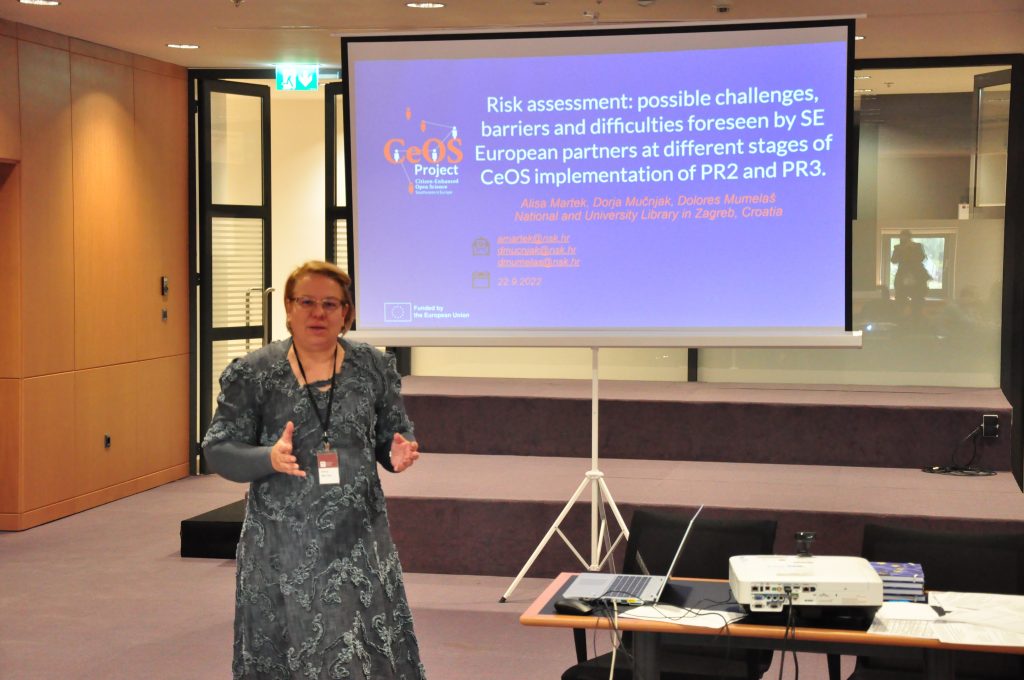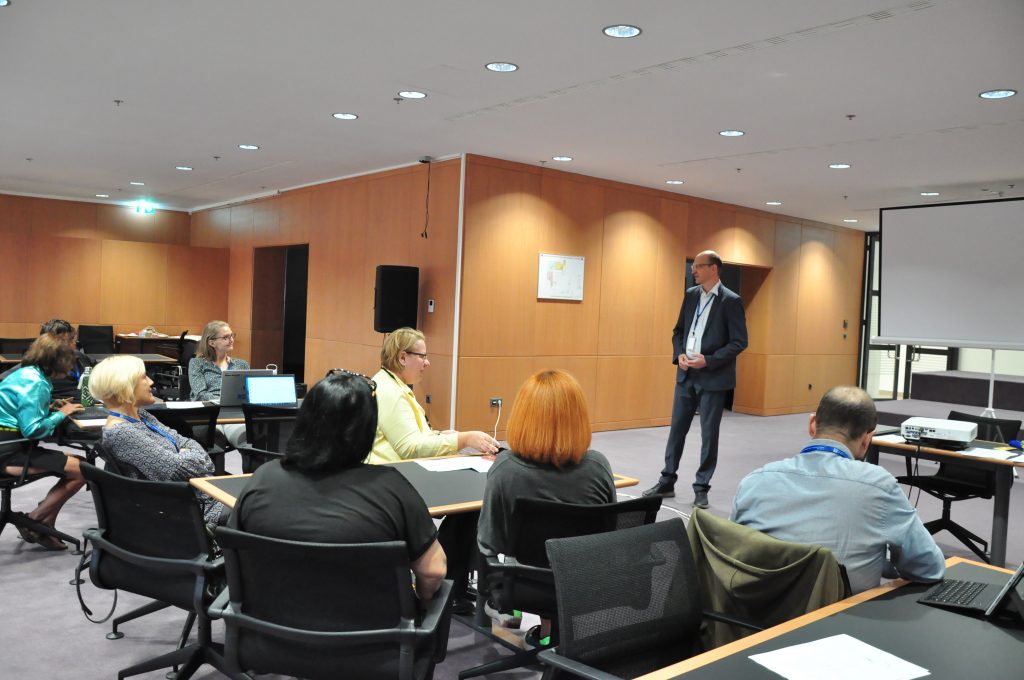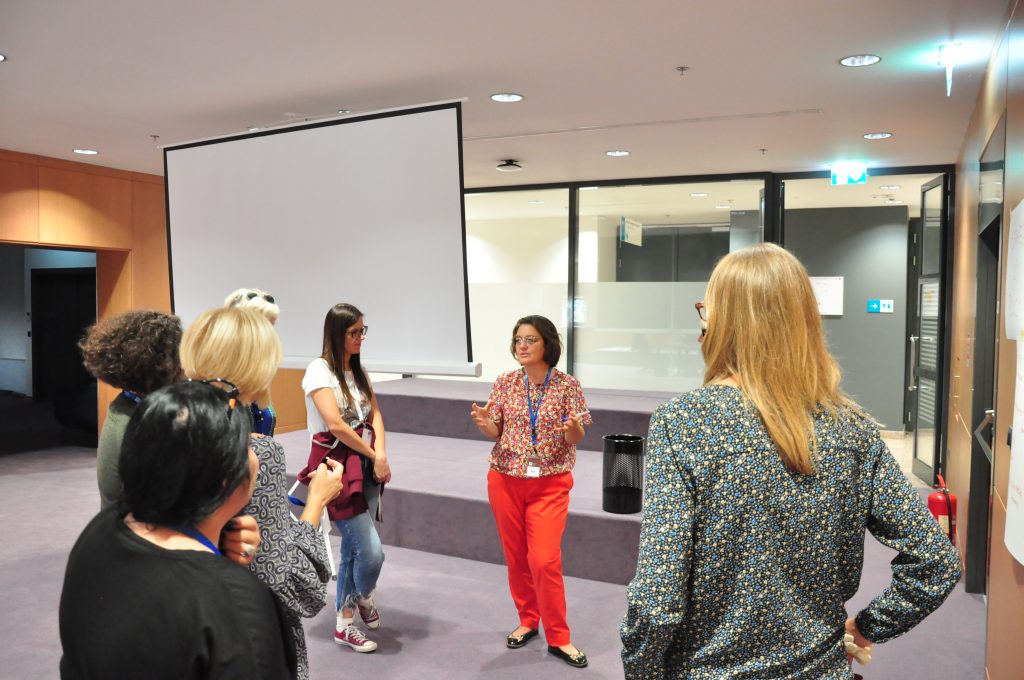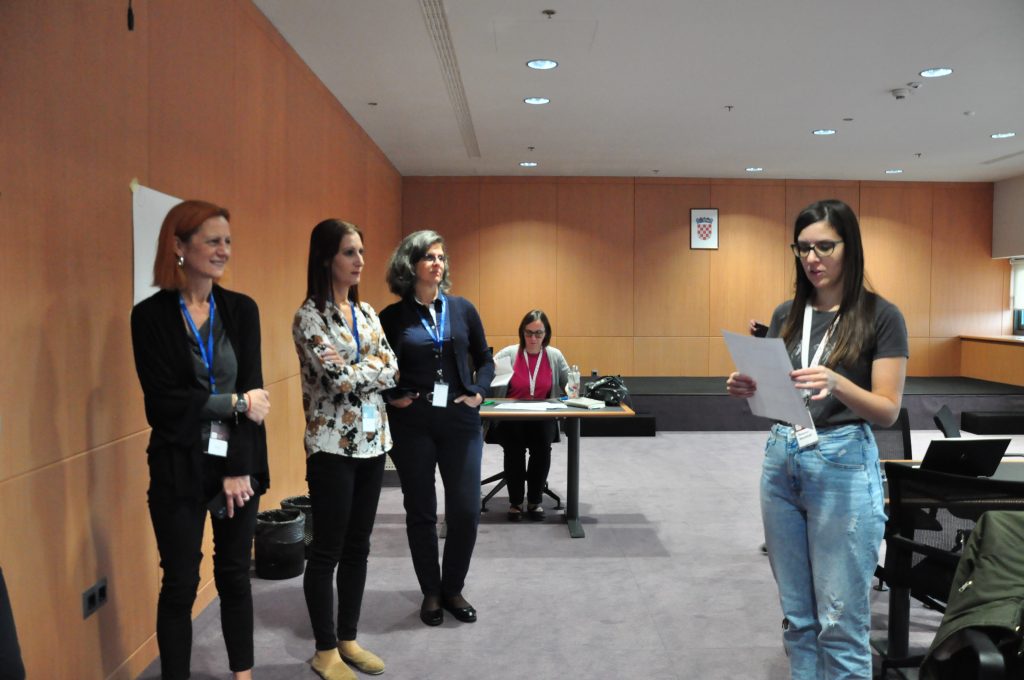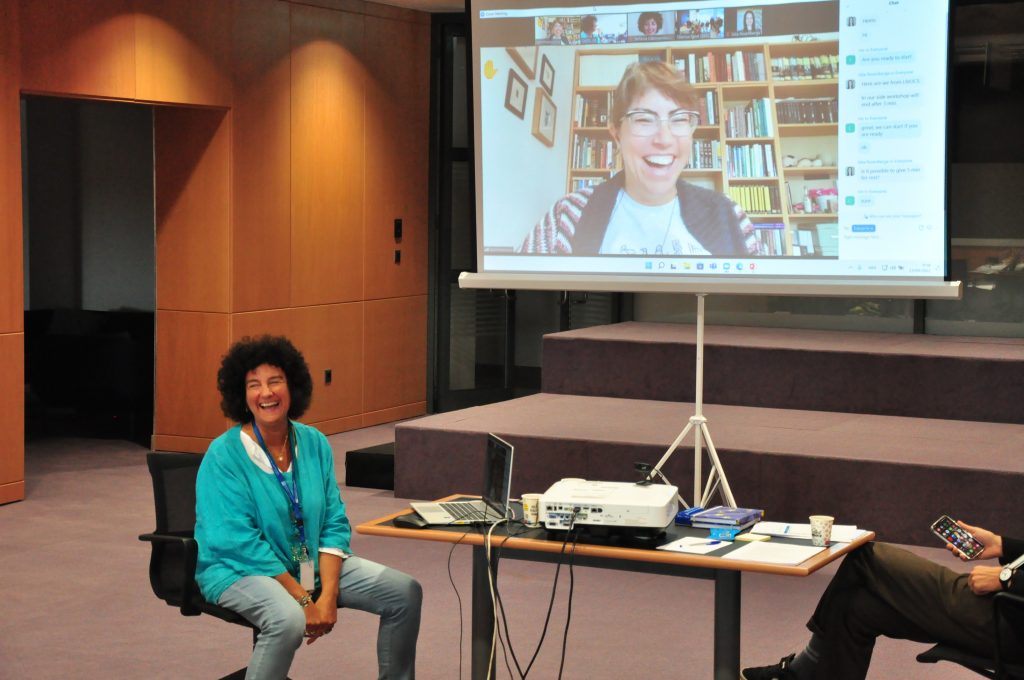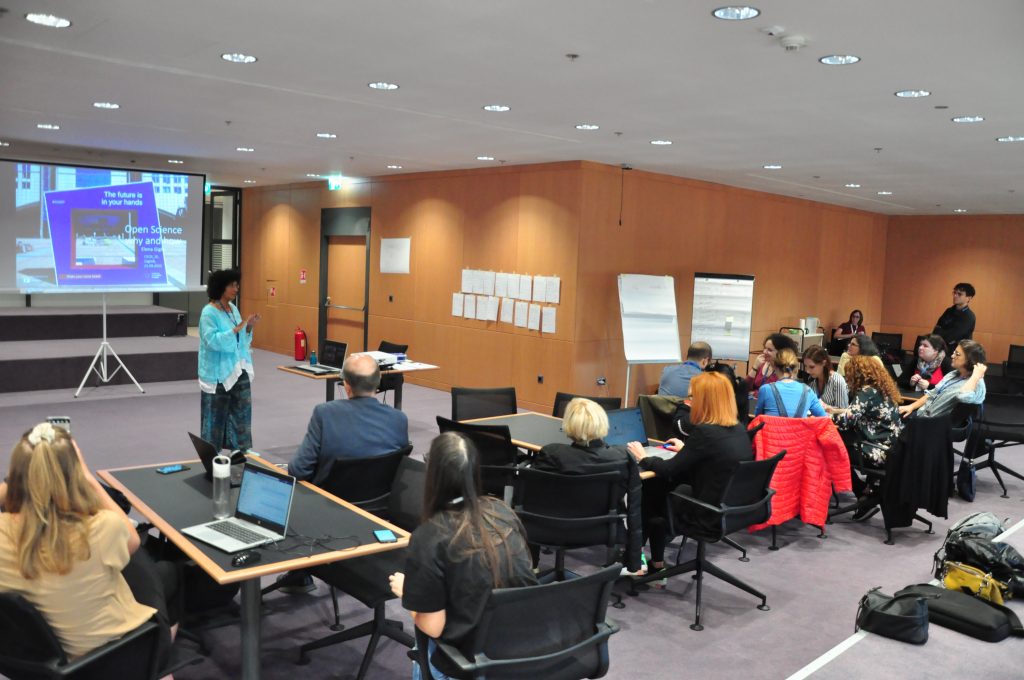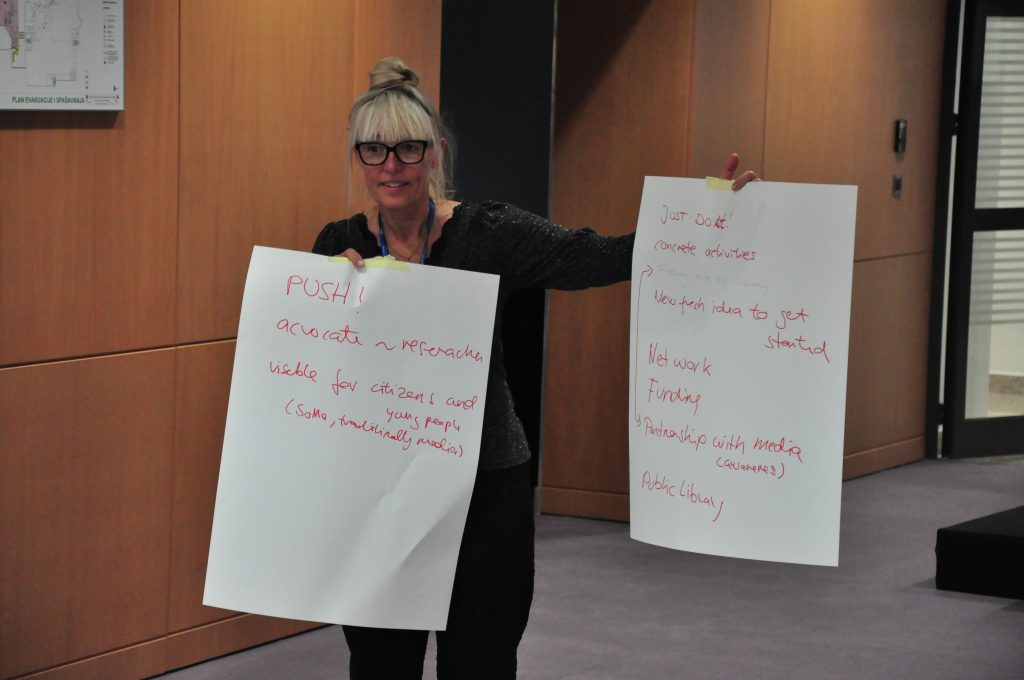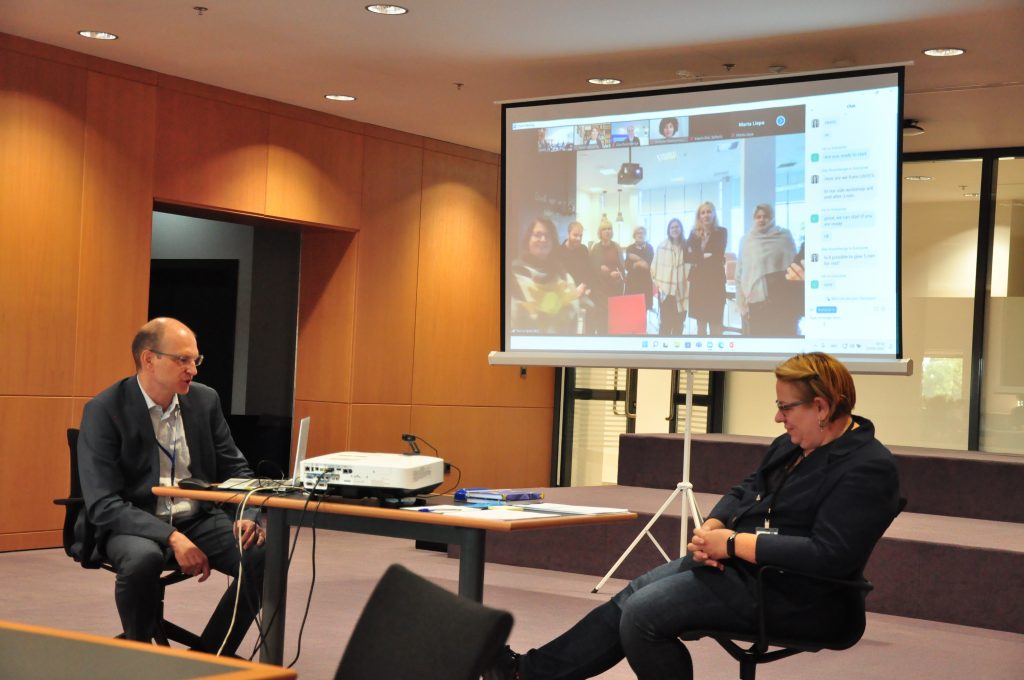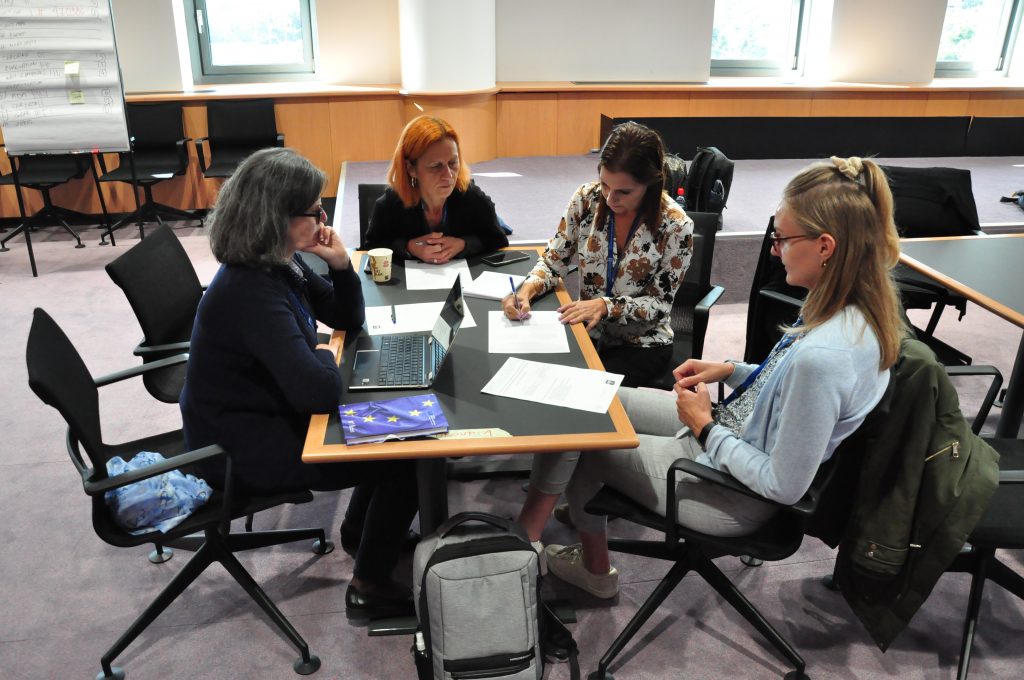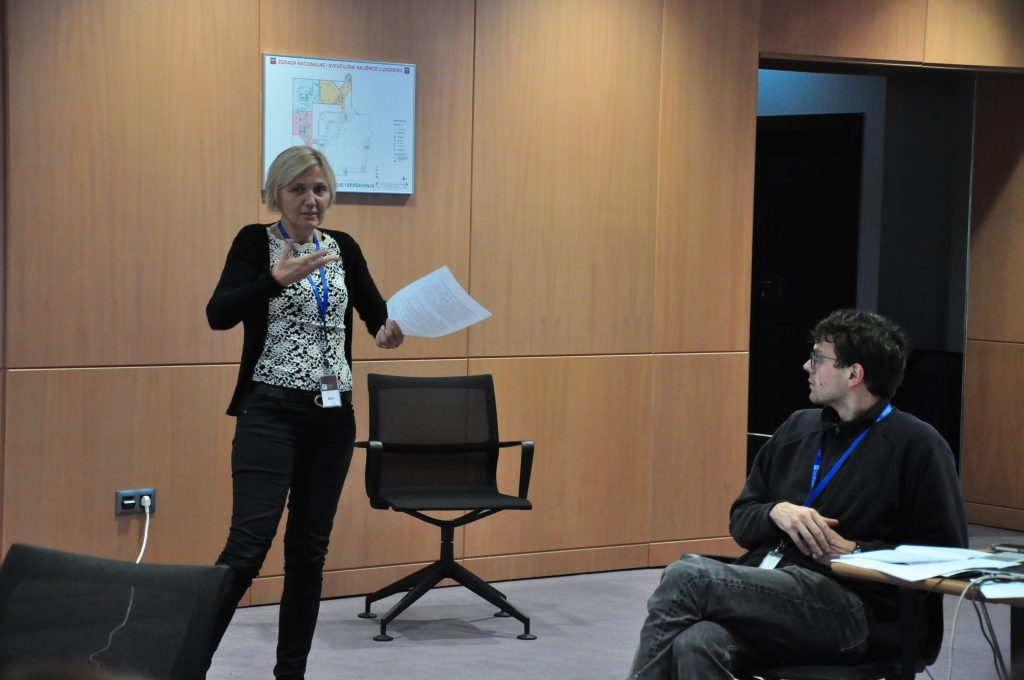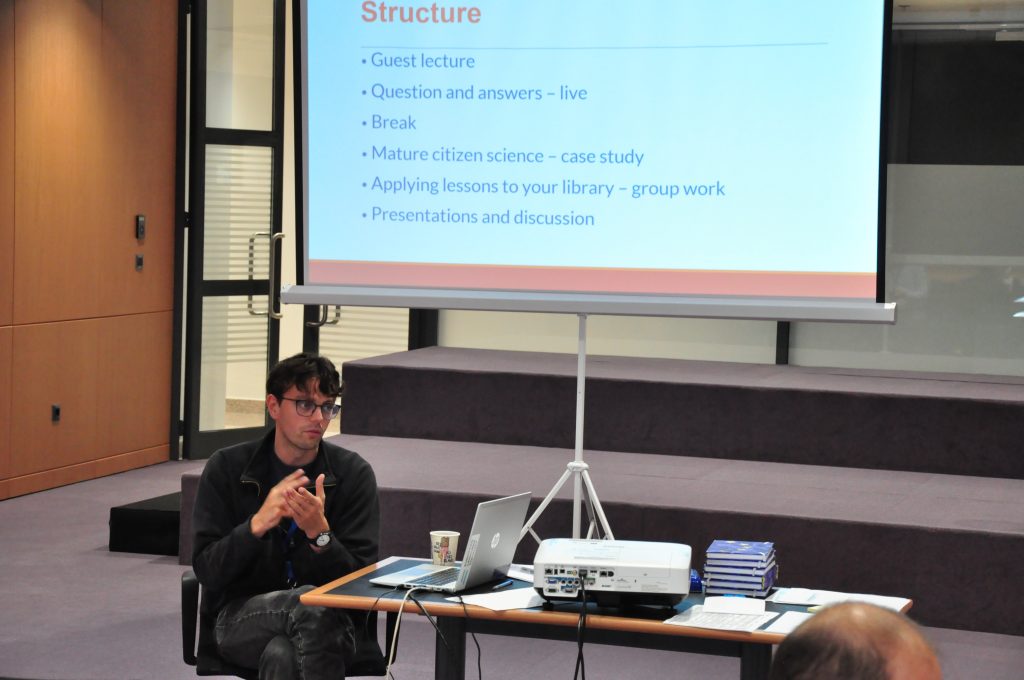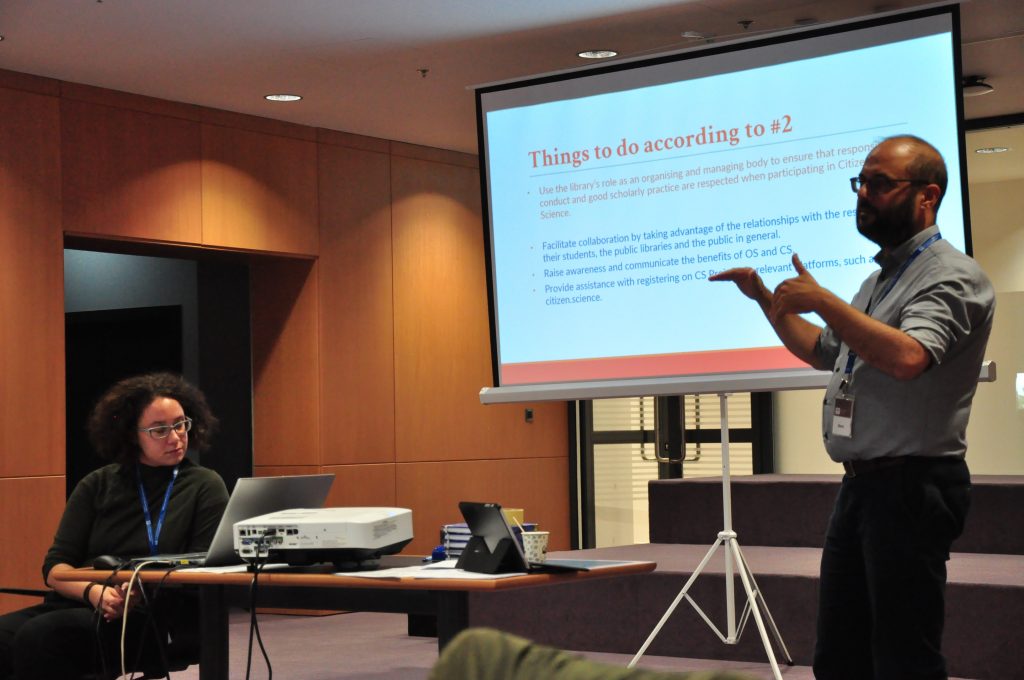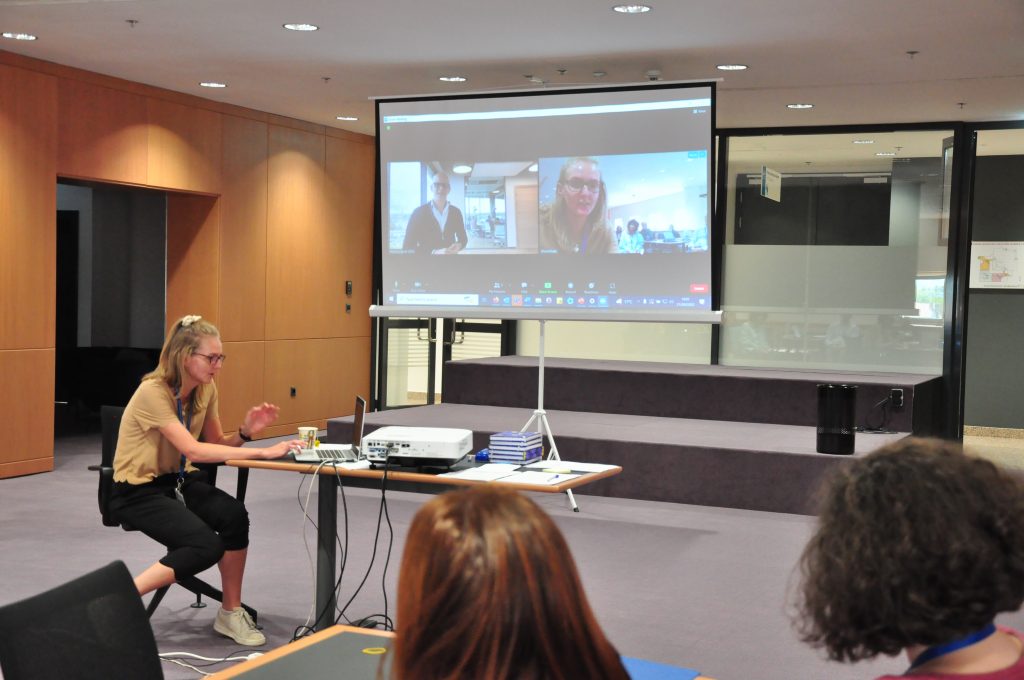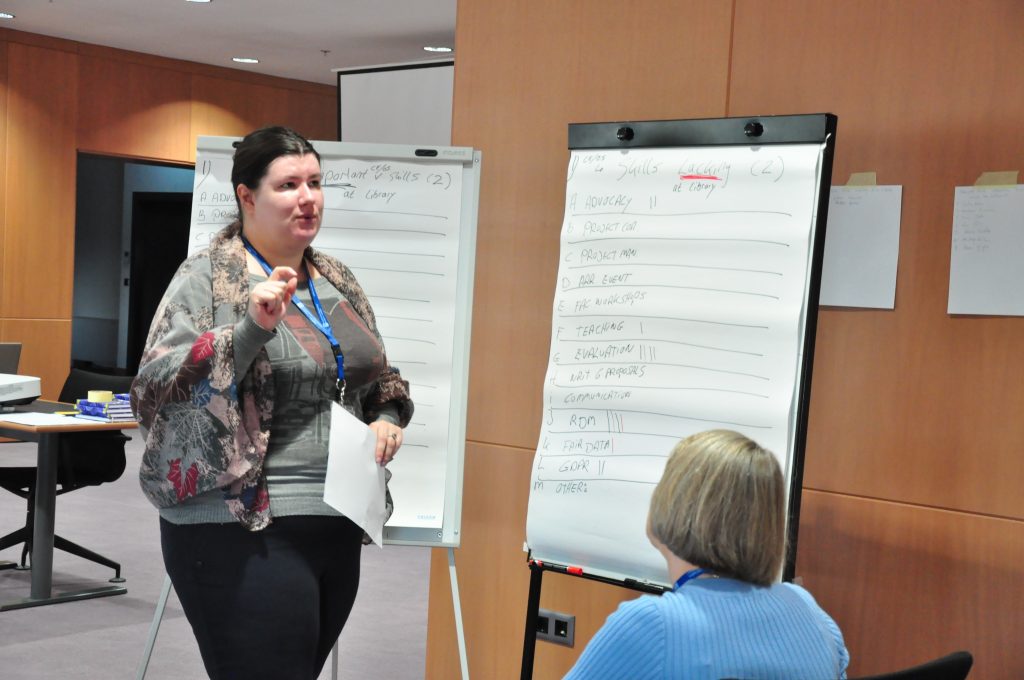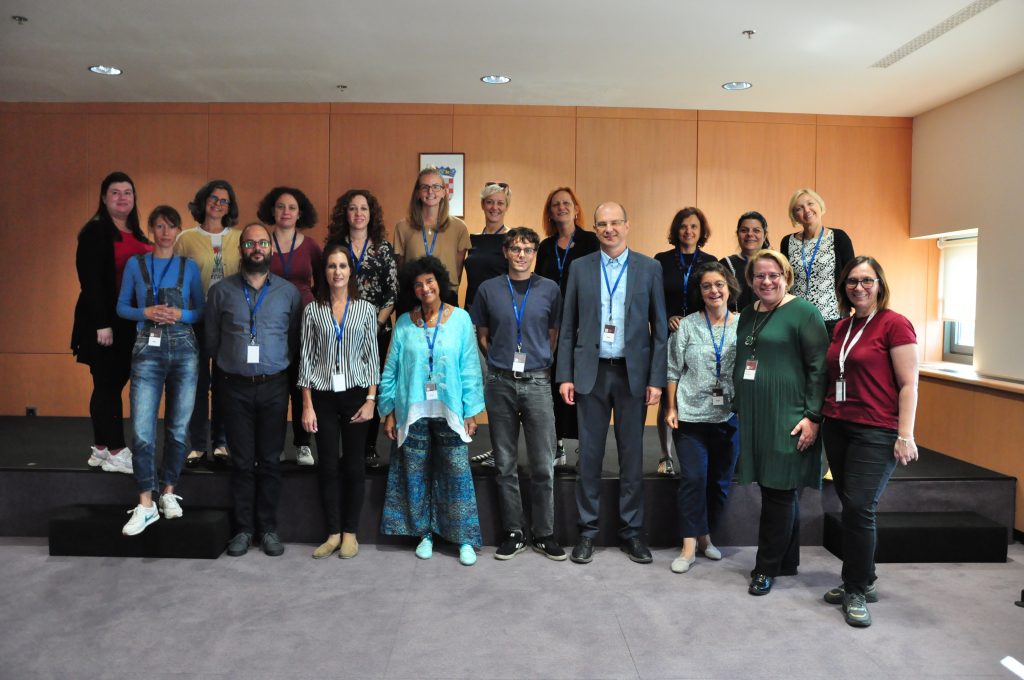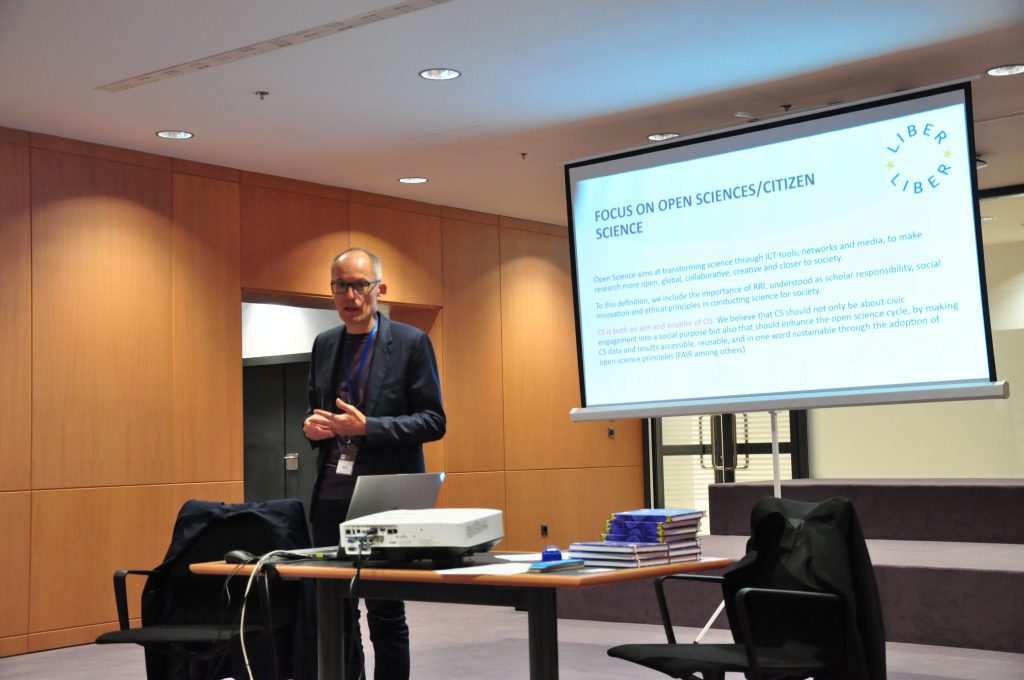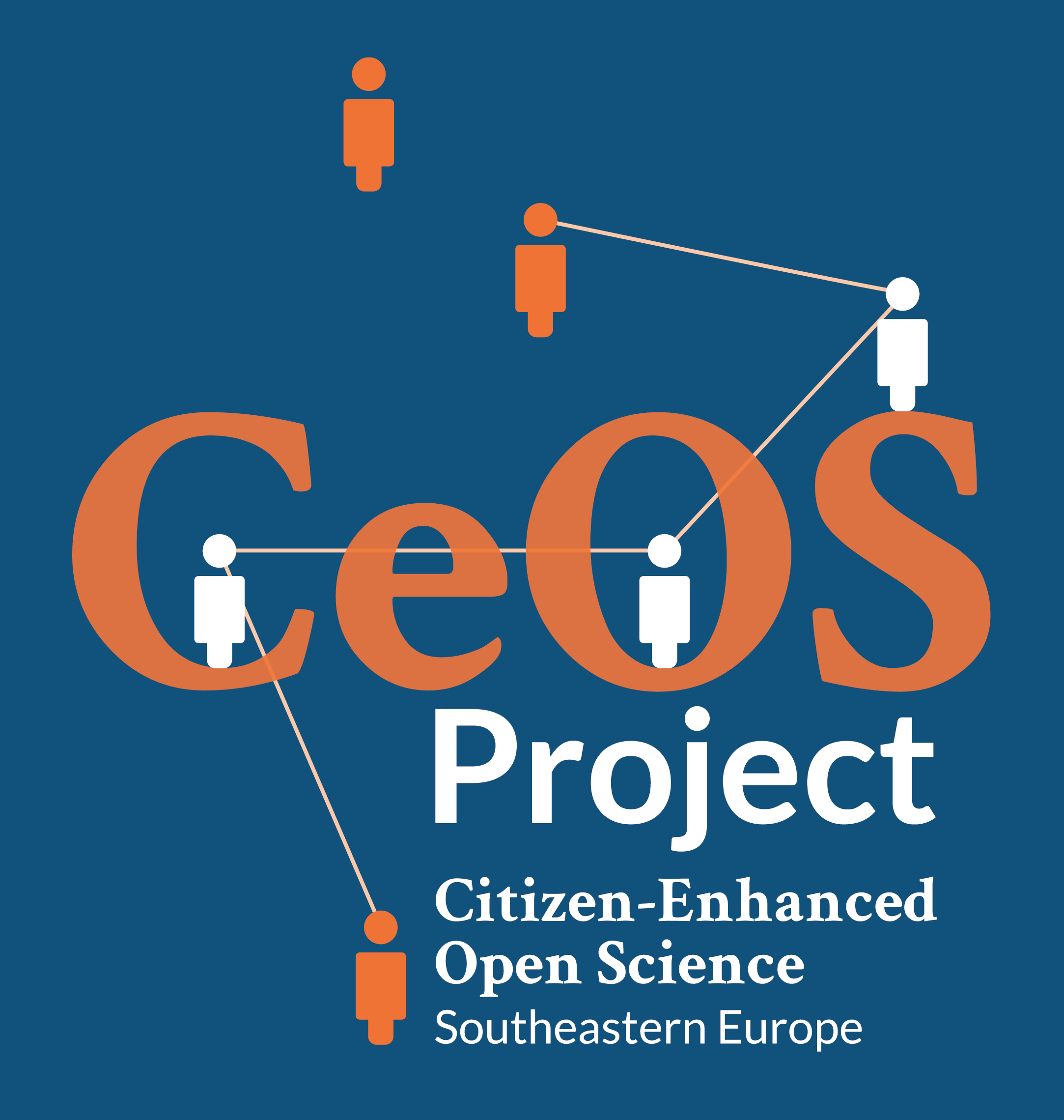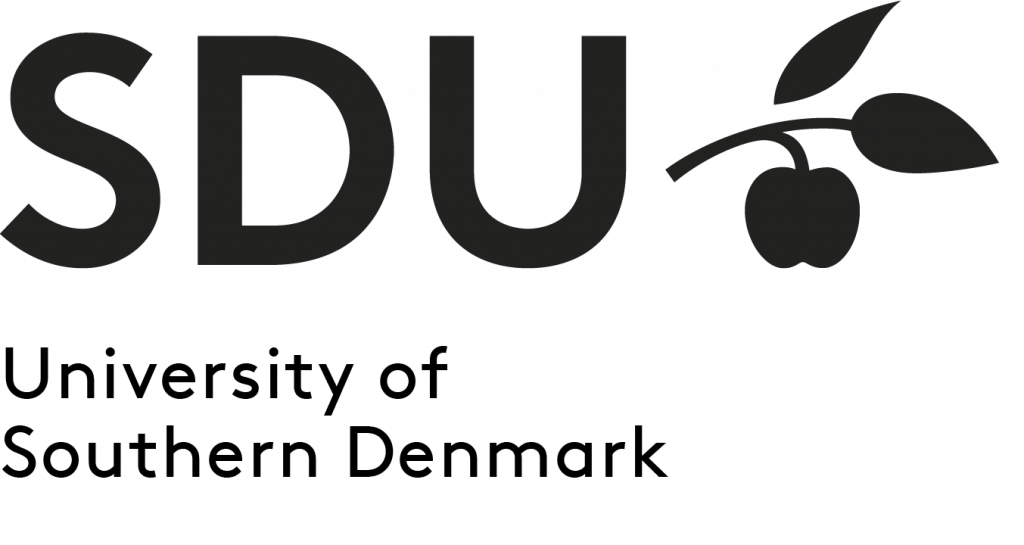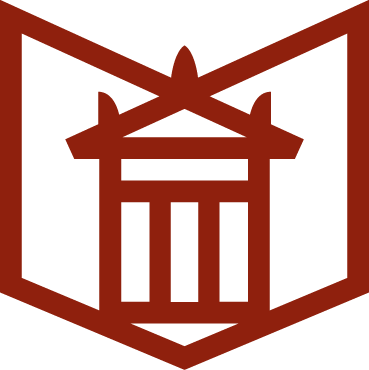Between September 19th – 23rd, the National Library of Zagreb hosted a week of Learning, Teaching, and Training Activities (LTTA). The partners participated in a core component of the CeOS_SE project design, allowing each member a chance to take an in-depth look at citizen-enhanced open science. The five days were spent reviewing the progress and achievements of the project, sharing knowledge, becoming acquainted with each other’s institution and planning for the future.
Each day saw different members of the project present and host sessions. Here we will give a quick recap of what took place.
Monday started with a project meeting to review progress and deal with administrative aspects of the project. Here, the group looked forward to future activities and planned for the start of new tasks. After this, University of Southern Denmark (SDU) presented the literature review and data they had collected from libraries around Europe. As the first project activity, these results form the knowledge base from which the project will build so this was a key opportunity to present findings and receive important feedback. The result of this session will build a set of recommendations for citizen science in research libraries which will shortly be published on our Zenodo channel.
On the second day, we heard from project coordinator LIBER about the INOS project – another Erasmus+ project which focuses on citizen science in Higher Education Institutes. Our project is keen to learn from the lessons of other projects and track the state-of-the-art in citizen science. Following this introduction, the University of Patras hosted a session about examples of citizen science projects in action. The audience was engaged through interactive polls, while presenting projects and key documents to help build capacity on citizen enhanced open science.
At the halfway stage, the team from UniTo presented on open science (OS). This looked specifically at how to train and educated people about OS, with revealing insights into how external audiences could be engaged on the topic, raising awareness on open science and citizen science. Furthermore, we had a close look at changes in the European research landscape and how there is a a new urgency and necessity to implement OS. We then watched a lecture with recorded by Tiberius Ignat, focusing on how to engage diverse publics with citizen science projects. The day closed with LIBER showing three examples of citizen science in action within university libraries, looking at their organisational structure, goals, and achievements.
The morning session on Thursday encouraged everyone to get creative. Our hosts NSK led an activity in which partners were asked to think of citizen science activities from the perspective of fictional faculty libraries, with different members playing the role of university libraries and public libraries. We then returned to reality and saw results of a real survey conducted within the framework of CeOS_SE, which investigated the cooperation between public and academic libraries and good practices of such partnerships.
The afternoon focused on two of our partnering institutions – University Library “Svetozar Markovic”, Belgrade, Serbia (UNILIB) and University of Cyprus Library (UCY). Nataša Dakić and the UNILIB team talked about their personal journey with Citizen Science awareness, and the barriers they face in terms of funding, personnel, and advocacy. Zafiro Marti presented on behalf of the UCY team, and discussed the challenges and benefits of organising the first ever Citizen Science activity at their university in June 2022.
To close the week, CeOS_SE partners joined together with ‘sister’ project, LibOCS, who were also conducting training activities in Riga. This was an opportunity to share the lessons learned throughout the first nine months of both projects, and explore how we could collaborate in the future and align our similar aims to further citizen science across Europe.
As the first in-person meeting, the week gave each partner a chance to build relationships, forming an understanding of one another’s libraries and the differing approaches to open science and citizen science. The meeting lays a vital foundation for the rest of the project as we continue to advance citizen science in Southeast Europe.
We look forward to meeting each other again – not just as colleagues, but as friends!
View the slides presented during the LTTA on our Zenodo channel, here.
